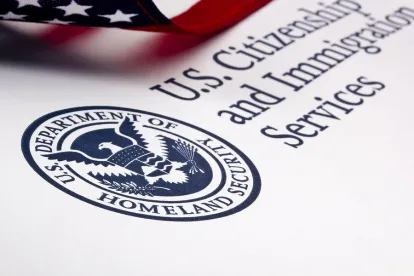USCIS has exceeded its authority in issuing additional requirements on H-1B petitions involving third-party worksites, a suit filed in New Jersey seeking a temporary restraining order alleges.
Just before the 2019 H-1B filing deadline, USCIS issued a memorandum clarifying that petitioners who send employees to third-party worksites must provide significantly more evidence to show that a bona fide employment relationship exists between the employee and the H-1B petitioner. Among other things, this evidence may need to include: documentation of specific work assignments, copies of contractual agreements, itineraries, and detailed work statements covering the entire duration of the H-1B term of employment.
The new memo is aligned with President Donald Trump’s Buy American, Hire American Executive Order and is aimed at protecting U.S. workers. The Administration believes that abuses of the H-1B program, such as not paying the required wage or having workers do “non-specialty occupation” work that harm the U.S. workforce, are more likely to occur at third-party worksite.
The new requirements clearly place additional burdens on any H-1B employers who subcontract high-skilled employees.
Several small technology staffing companies along with a trade organization, the Small and Medium Enterprise Consortium, seeing this a threat to their business models, filed suit in New Jersey federal court seeking a temporary restraining order (TRO) to stop USCIS from enforcing the new memo.
The plaintiffs argue that the new policies go beyond the statutory authority granted to USCIS and that the memo, therefore, violates the Administrative Procedures Act (APA). The plaintiffs have suggested that rather than focusing on who is “bona fide employee,” USCIS should focus on who is an “employer” under the H-1B program. The plaintiffs also have argued that as a matter of public policy, the H-1B visa program was originally designed to ease the critical shortage of technology workers in the United States.
In support of the TRO, the plaintiffs state that the requirements in the policy memorandum will in many cases not be possible to meet, and that the denial of H-1B petitions on this basis will ultimately result in plaintiffs suffering “irreparable harm to [their] reputation and [their] ability to compete” as U.S. jobs will be sent offshore to providers abroad. USCIS has declined comment on the lawsuit.
These accusations may not be speculative. There have been reports of denials of H-1B extensions on the basis of the new policy memorandum. We will continue to monitor and report developments.




 />i
/>i
